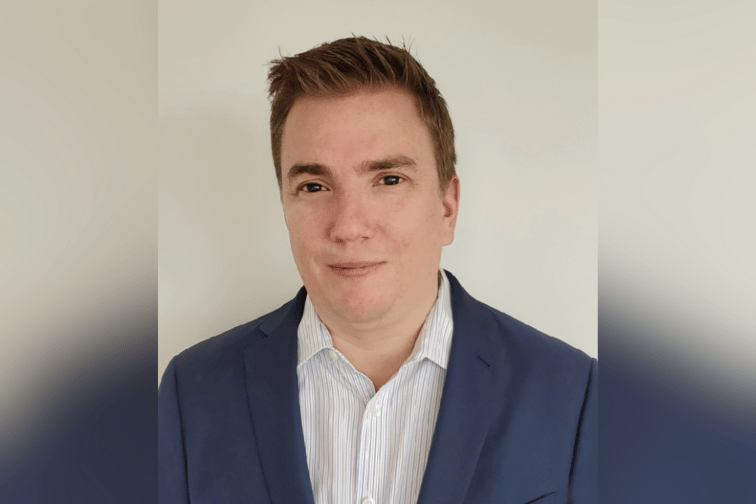

This article was produced in partnership with Signal Underwriting
When you’re dealing with niche fields, it is best to deal with those in the know.
“It’s important to work with people who deeply understand their industries,” said Alexander Blair-Johns, founder and CEO, SIGNAL Underwriting. His company specializes in healthcare and life sciences, though “we are broadening our specialization as we go,” he said.
He speaks from experience – 21 years’ worth of it, both as an underwriter and former broker.
A company may sell a product “but they may not necessarily be able to back it up with the people that really understand it,” Blair-Johns said. In his industry, “you need people that can actually support the product and provide that knowledge and service to the brokers.”
That knowledge comes from experience. “There’s no real substitute for just doing it every day and paying attention,” he said. For example, looking to the U.S. can serve as a bit of a crystal ball. “Changes in U.S. laws and what sparks litigation there usually foreshadows what could happen in Canada,” he said.
Keeping on top of the news is just one part of staying informed.
“Reach out to other underwriters, and have a good relationship with your brokers,” he said. “We all work in the same industry, and I think bouncing things off of each other can benefit all of us.”
For Blair-Johns, there is a single fundamental quality that can really set an underwriter apart.
“There’s one thing you can’t teach underwriters and that’s curiosity,” he said. “If you were the person who, going through elementary or high school, was always getting in trouble for challenging the teacher, chances are you would make a pretty good underwriter.”
“If you don’t really know the product that you’re selling or underwriting, that’s not something you can really get around,” he said. “You need to be able to explain your coverages and you need to understand how your wording reacts, because if you don’t understand some of the exclusions in your policy, how can you confidently underwrite a risk? I've seen where coverage has been put in place, but in fact, there’s a glaring exclusion in that policy that actually says you aren’t insuring an important part of the operations. So, you really need to know your own products.”
While knowing your products is key, so too is understanding the environment of the industry they’re being used with.
“You need to understand your market space to understand what generates risk, or what actually triggers claims in a particular industry segment. Those are things that change premiums and should make you look at the deductible selections or limit selections.”
But don’t let things like loss rates scare you off necessarily. A deep dive can give you details that can prove beneficial.
“It’s actually easier to underwrite a risk that’s got a 10-year loss history and has had claims, versus one that hasn’t. No business is completely risk-free in the long term, so it’s better to have an idea of where the risk could end up,” Blair-Johns said.
You can look at the active circuit claim history and a 10-year loss history and see “where it’s going in 10 years – it’s easier to sell that insurance because they use it.”
“One of the things that can make me nervous is when underwriters don’t ask me questions,” he said. “I love questions. I love being asked questions.”
He has seen it in his own underwriting over the years. Asking those questions up front can save headaches down the road for all involved.
For example, driving seniors can come with its own sets of risks – especially if drivers are using private vehicles.
“You need to make sure those drivers are carrying enough insurance,” he said. “If they’re being paid to transport people, that’s now a business and they can be at risk of not having the vehicle classed correctly. Being a specialist is about helping identify those risks and explaining them to clients.”
Health and beauty spas also need to pay attention to exclusions for HIV or hepatitis C.
“It’s terrible, but it does happen,” Blair-Johns said. “I’ve seen claims where people who went in for a spa treatment now have hepatitis C and that is a medical malpractice exposure you should want covered.”
Even something as innocent as homemade soaps do not escape Blair-Johns’ underwriter’s eye.
“It a fine home business,” he said, “but Health Canada requires that the soap producer register their product with them so they are informed of the contents.”
“We’re not lawyers. We’re not here to tell you to adhere to all the statutes and regulations that exist. But certainly, people in the right segments can spot possible problems and point you in the right direction,” said Blair-Johns.
During the pandemic, he saw how vigilance could help keep people safe.
“People were importing masks left, right and centre,” he said. “Through research, I caught multiple fraudulent masks. I won’t insure things that I know are fraudulent.”
Some importers were claiming that they were shipping N-95 masks, but he knew better.
“They were definitely frauds,” he said.
That is why he is more than happy to help educate and train brokers so that they know how best to talk to clients.
“I think that’s our role.” he said. “That’s how we show our value.”
His advice for brokers: “Talk to your underwriters [at SIGNAL]. We’re good at what we do and we’re always willing to help.”
